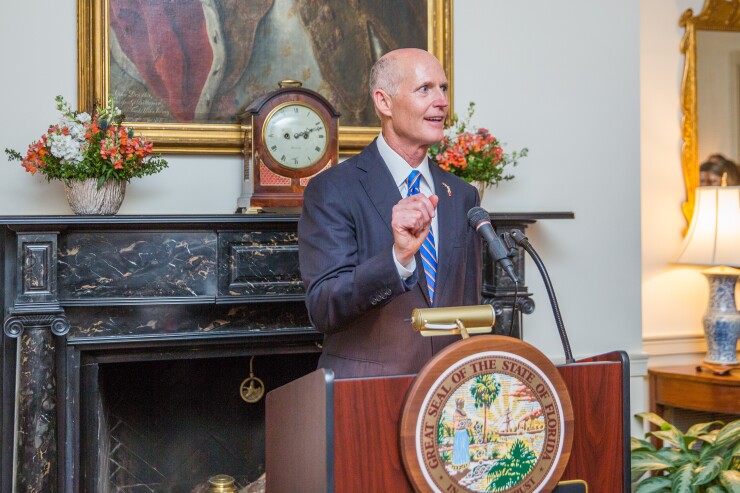BRADENTON, Fla. – The U.S. Supreme Court hears arguments Monday in a decades-old feud between Florida and Georgia over fresh water.
Florida Gov. Rick Scott has spent more than $100 million to get the case before the court. He filed it in 2013, shortly after the state’s oyster fisheries collapsed amid reduced freshwater flows from Georgia during a drought.

Scott’s attorneys said in a court filing that Special Master Ralph Lancaster was wrong last year when he recommended justices deny Florida’s request to cap Georgia’s consumption of fresh water.
“This original action represents the state of Florida’s last remaining legal remedy to save the Apalachicola Region - one of the nation’s most unique, diverse, and irreplaceable environmental resources - from devastation as a result of the state of Georgia’s ever-increasing consumption of the waters on which the Apalachicola [Region] ultimately depends for its life,” they wrote on May 31, 2017, taking exception to Lancaster’s report.
Florida's attorneys said the special master was incorrect in deciding that adequate relief could not be afforded to Florida because the U.S. Army Corps of Engineers was not a party to the suit.
The Corps controls a significant amount of water in Georgia through reservoirs and dams in the Apalachicola-Chattahoochee-Flint River Basin, a major source of water for drinking, marine and agricultural resources in Georgia, Florida and Alabama.
Lancaster said Florida failed to show that a consumption cap will afford adequate relief.
“Because the Corps is not a party, no decree entered by this court can mandate any change in the Corps’ operations in the basin,” the Maine attorney wrote in
Without the ability to “bind” the Corps, Lancaster said there’s no way the court can assure Florida can get the relief sought.
“I conclude that Florida has not proven by clear and convincing evidence that its injury can be redressed by an order equitably apportioning the waters of the basin,” he said.
The jurists are expected to rely heavily on his recommendation.
Despite his findings, Lancaster was not entirely unsympathetic to Florida. He pointed out deficiencies in the way Georgia has handled agricultural permits for irrigation water and said it “appears that Georgia’s upstream agricultural water use has been – and continues to be – largely unrestrained.”
Florida has “suffered harm” from decreased downstream flows from the basin that increased salinity levels in Apalachicola Bay and led to “an unprecedented collapse of its oyster fisheries in 2012,” he said.
The Supreme Court has never found “both injury and inequitable conduct” - as the special master did - and held that the court is powerless to do anything about it, Florida's attorneys said.
“Such a ruling would flout the principles of equity that guide equitable apportionment actions by allowing an acknowledged wrong to go un-remedied,” they said.
Florida has hired three outside firms to work on its case: Latham & Watkins LLP, Foley & Lardner LLP, and Carlton Fields Jorden Burt PA.
Georgia reportedly has spent about $30 million, and has hired the firm of Kirkland & Ellis LLP.





